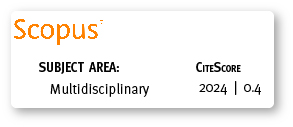Variables personales relacionadas con el rendimiento académico
DOI:
https://doi.org/10.18537/mskn.07.02.05Palabras clave:
rendimiento académico, inteligencia, atención, autoconcepto, ansiedadResumen
El objetivo del presente estudio fue examinar en qué medida variables de tipo personal como inteligencia, atención, autoconcepto y ansiedad predicen el rendimiento académico de los estudiantes de cuarto año de educación general básica. Un total de 410 niños procedentes de 14 escuelas públicas de la ciudad de Cuenca recibieron una serie de pruebas para evaluar su inteligencia (WISC-IV), atención (D2), auto-concepto (Piers-Harris), y ansiedad (Spence). Los resultados demuestran en primer lugar, que los niveles de autoconcepto y ansiedad promedio de los niños fue moderado, sin embargo, su nivel medio de inteligencia fue normal-bajo y su nivel de atención fue extremadamente bajo. En segundo lugar, se encontró que todas las variables personales mencionadas predicen el rendimiento académico, siendo la inteligencia la variable que presenta el índice más alto de predicción. Finalmente, se encontraron diferencias de género en todas las variables, indicando que las mujeres obtuvieron puntuaciones más altas en inteligencia, atención y autoconcepto, así como un nivel de ansiedad mayor. Las niñas también presentaron un rendimiento académico mayor. Los resultados de este estudio apuntan a la necesidad de llevar a cabo intervenciones educativas orientadas a estimular el desarrollo de variables personales, incluyendo la inteligencia, con el fin de favorecer el desempeño académico de nuestros estudiantes, particularmente de aquellos en riesgo de fracaso escolar.
Palabras clave: Rendimiento académico, inteligencia, atención, autoconcepto, ansiedad.
Descargas
Métricas
Citas
Berg, D.H., 2008. Working memory and arithmetic calculation in children: The contributory roles of processing speed, short-term memory, and reading. Journal of Experimental Child Psychology, 99(4), 288-308.
Brickenkamp, R., 2002. D2, Test de atención. (Traducción al castellano por N. Seisdedos). Madrid, España: TEA Ediciones.
Castillo-Parra, G., E. Gómez, F. Ostrosky-Solís, 2009. Relación entre las funciones cognitivas y el nivel de rendimiento académico en niños. Revista Neuropsicología, Neuropsiquiatría y Neurociencias, 9(1), 41-54.
Cascón, I., 2000. Predictores del rendimiento académico en alumnos de primero y segundo de BUP. Disponible en http://www3.usal.es/~inico/investigacion/jornadas/ jornada2/comun/c19.html.
Caso-Niebla, J., L. Hernández-Guzmán, 2007. Variables que inciden en el rendimiento académico de adolescentes mexicanos. Revista Latinoamericana de Psicología, 39(3), 487-501.
Cullbertson, W., E.A. Zillmer, 1998. The tower of London (DX): A standardized approach to assessing executive functioning in children. Archives of Clinical Neuropsychology, 13(3), 285-302.
Fandiño, Y.J., 2008. Enseñanza e investigación inteligentes de la inteligencia. Innovación Educativa, 8(44), 21 pp.
Fernández-Castillo, A., M.E. Gutiérrez Rojas, 2009. Atención selectiva, ansiedad, sintomatología depresiva y rendimiento académico en adolescentes. Electronic Journal of Research in Educational Psychology, 17(7), 49-76.
Gareca, S.B., 2005. Cultura, inteligencia y fracaso escolar: una tríada de complejo abordaje en la práctica docente. Revista Iberoamericana de Educación, 36(11), 12 pp.
García-Sevilla, J., 1997. Psicología de la atención. Madrid, España: Síntesis.
García-Fernández, J., M.C. Martínez-Monteagudo, C.J. Inglés, 2013. ¿Cómo se relaciona la ansiedad escolar con el rendimiento académico? Revista Iberoamericana de Psicología y Salud, 4(1), 63-76.
García, T., C. Rodríguez, L. Betts, D. Areces, P. González-Castro, 2016. How affective-motivational variables and approaches to learning predict mathematics achievement in upper elementary levels. Learning and Individual Differences, 49, 25-31.
Geary, D.C., 1996. Sexual selection and sex differences in mathematical abilities. Behavioral and Brain Sciences, 19(2), 229-247.
Gonzalez-Pienda, J.A., 2003. El rendimiento escolar. Un análisis de las variables que lo condicionan. Revista Galego-Portuguesa de Psicoloxía e Educación, 8(7), 1138-1663.
Gottfredson, L.S., 2002. G: Highly general and highly practical. In: Sternberg, R.J., E.L. Grigorenko (Eds.). The general factor of intelligence. How general is it? Mahwah, NJ: Erlbaum, pp. 331-338.
Greenberg, M.L., 1996. Test of variables of attention (TOVA). Los Alamitos, CA: Universal Attention Disorders.
Fernández-Castillo, A., M. Gutiérrez, 2009. Atención selectiva, ansiedad, sintomatología depresiva y rendimiento académico en adolescentes. Electronic Journal of Research in Educational Psychology, 7(17), 49-76.
Henández-Guamán, L., G. Bermúdez-Ornelas, S.H. Spence, M.J. Gonzales, J.I. Martínez-Guerrero, J. Aguilar, J. Gallegos, 2009. Versión es español de la Escala de Ansiedad para niños de Spence (SCAS). Revista latinoamericana de Psicología, 42(1), 13-24.
Hyde, J.S., M.C. Linn, 1988. Gender differences in verbal ability: A meta-analysis. Psychological Bulletin, 104(1), 53-69.
INEVAL, 2014. Ser estudiante 2013: Primeros resultados. Publicaciones INEVAL. Disponible en http://www.evaluacion.gob.ec/resultados/images/_in2_bin/DAGI_SEI2013 _InformeNacionalSE_20150701.pdf, 55 pp.
Jiménez, J.E., S. Hernández, E. García, A. Díaz, C. Rodríguez, R. Martín, 2015. Test de atención D2: Datos normativos y desarrollo evolutivo de la atención en educación primaria. European Journal of Education and Psychology, 5(1), 93-106.
Laidra, K., H. Pullmann, J. Allik, 2007. Personality and intelligence as predictors of academic achievement: A cross-sectional study from elementary to secondary school. Personality and Individual Differences, 42(3), 441-451.
Lambating, J., J.D. Allen, 2002. How the multiple functions of grades influence their validity and value as measures of academic achievement. Ponencia presentada en: Annual Meeting of the American Educational Research Association. New Orleans, April 1-5.
León, B., 2008. Atención plena y rendimiento académico en estudiantes de enseñanza secundaria. European Journal of Education and Psychology, 1(3), 17-26.
Locker, J., M. Cropley, 2004. Anxiety, depression and self-esteem in Secondary school children. School Psychology International, 25(3), 333-345.
Loperena, M.A., 2008. El autoconcepto en niños de cuatro a seis años. Tiempo de Educar, 9(18), 307-327.
Mazzone, L., F. Ducci, M.C. Scoto, E. Passaniti, V.G. D ́Arrigo, B. Vitiello, 2007. The role of anxiety symptoms in school performance in a community sample of children and adolescents. BMC Public Health, 7, 6 pp.
Milicic, M., 2001. Creo en ti: La construcción de la autoestima en el contexto escolar. Santiago, Chile: Lom Ediciones.
Miñano, P., J.L. Castejón, 2008. Capacidad predictiva de las variables cognitivo-motivacionales sobre el rendimiento académico. Revista Electrónica de Motivación y Emoción, 11(28), 13 pp.
Ministerio de Educación, 2013. Archivo maestro de instituciones educativas AMIE. Reporte de registros educativos 2013-2014. Quito, Ecuador.
Naranjo, C.R., A.C. González, 2012. Autoestima en la adolescencia: análisis y estrategias de intervención. International Journal of Psychology and Psychological Therapy, 12(3), 389-403.
Pedhazur, E.J., 1997. Multiple regression in behavioral research: Explanation and prediction (3rd ed.). Fort Worth, TX: Harcourt Brace College Publishers.
Piers, E.V., D.B. Harris, 1969. The Piers-Harris Children's Self-Concept Scale. Nashville, Tennesse: Counselor Recording and Tests.
Rains, D., 2004. Principios de neuropsicología humana. México D.F., México: McGraw-Hill Publ. Comp.
Sánchez, M., F. Peralta, 2003. Relaciones entre el autoconcepto y el rendimiento académico, en alumnos de Educación Primaria. Revista Electrónica de Investigación Psicoeducativa y Psicopedagógica, 1(1), 95-120.
Spinath, B., H.H. Freedenthaler, A.C. Neubauer, 2010. Domain-specific school achievement in boys and girls as predicted by intelligence, personality and motivation. Personality and Individual Differences, 48(4), 481-486.
Tejedor, F.J., S.G. González-Gonzales, M.M. García-Senoran, 2008. Estrategias atencionales y rendimiento académico en estudiantes de Secundaria. Revista Latinoamericana de Psicología, 40(1), 123-132.
Tenti Fanfani, E., 2002. El rendimiento escolar en la Argentina. Buenos Aires, Argentina: Losada.
TERCE, 2015. Logros de aprendizaje, Ecuador. Santiago, Chile: Oficina Regional de Educación de la UNESCO para América Latina y el Caribe. Disponible en http://www.unesco.org/new/fileadmin/ MULTIMEDIA/FIELD/ Santiago/pdf/Ficha-Logros-del-Aprendizaje-Ecuador.pdf.
TERCE, 2016. ¿Qué hay tras la inequidad de género en los logros de aprendizajes? Santiago, Chile: Oficina Regional de Educación de la UNESCO para América Latina y el Caribe. Disponible en http://unesdoc.unesco.org/images/0024/002442/244233s.pdf
Victor, M., A. Ropper, 2002. Principios de neurología. México D.F., México: McGraw-Hill Publ. Comp.
Villarroel, V.A., 2001. Relación entre autoconcepto y rendimiento académico. PSYKHE, 10(1), 3-18.
Wechsler, D., 2005. Wechsler Intelligence Scale for Children, Fourth Edition (WISC-IV), Spanish version. New York, NY: Psychological Corporation.
Yuste, C., M.A. Errisúriz, L. Ruiz, 2009. PIENSO Programa integral de estimulación de la inteligencia. México D.F., México: Trillas.
Descargas
Publicado
Cómo citar
Número
Sección
Licencia
Copyright © Autors. Creative Commons Attribution 4.0 License para cualquier artículo enviado a partir del 6 de junio de 2017. Para los manuscritos presentados anteriormente, se utilizó la licencia CC BY 3.0.
![]()
Usted es libre de:
 |
Compartir — compartir y redistribuir el material publicado en cualquier medio o formato. |
 |
Adaptar — combinar, transformar y construir sobre el material para cualquier propósito, incluso comercialmente. |
Bajo las siguientes condiciones:
 |
Atribución — Debe otorgar el crédito correspondiente, proporcionar un enlace a la licencia e indicar si se realizaron cambios. Puede hacerlo de cualquier manera razonable, pero de ninguna manera que sugiera que el licenciador lo respalda a usted o a su uso. |
| Sin restricciones adicionales: no puede aplicar términos legales o medidas tecnológicas que restrinjan legalmente a otros a hacer cualquier cosa que permita la licencia. |
Mayor información sobre este acuerdo de autoría y licencia, transferencia de derechos o solicitudes de reproducción, pueden ser consultados en este enlace.









